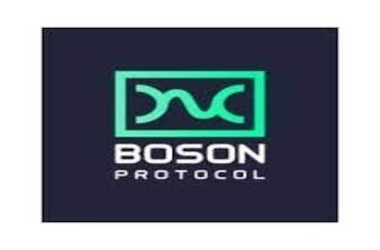
Cointelegraph met with Justin Banon, co-founder of Boson Protocol, prior to the launch of its foremost Metaverse marketplace session in Decentraland, named Boson Portal, to understand more about the firm’s long-term goal and commerce model:
“It is now accepted that persons have a digital footprint, such as a LinkedIn or Twitter profile. Additionally, during the next several years, it will be common for tangible and aesthetic products to have a digital counterpart.”
This concept of “twinning,” or the idea that every physical product or service has a digital NFT equivalent, is critical to Boson Protocol’s stated objective of becoming “a omnipresent gateway between the physical and the digital,” according to Banon.
That is why Boson Protocol created Boson Portal, a venue akin to a digital mall where Decentraland users may explore virtual things in the Metaverse and then perhaps obtain the actual item delivered to their home.
Additionally, the Portal is a gamified area. Banon referred to it as a “experiential fantasy world with missions.” Users may visit a brand’s store and pick from a variety of quests and games. The awards are non-transferable tokens (NFTs) that are considered hero stuff. Customers may either buy these hero goods at full retail price or participate in the recommended quest to get a discount on the NFT.
The BOSON coin is a proposed utility token for the protocol. Additionally, the network launched the dCommerce DAO with the intention of it being a self-sustaining, community-governed decentralized autonomous organization that reinvests earnings in the ecosystem’s development or utilities it to repurchase or burn BOSON tokens.
A charge of between 1% and 2% will be imposed to each transaction through the Boson Portal. These fees would subsequently be reinvested in the network and given to token holders. “The critical point is that there is no middleman, neither Amazon or eBay. It’s all based on game theory-encoded smart contracts. That implies no one is slicing through the center.”
Banon noted that by partnering with reputable businesses, consumers may conduct commerce in the Metaverse without worry of their cash being stolen. Boson Protocol bought “The Glass Garment” in September, a $1 million Dolce & Gabbana suit that doubles as an on-chain NFT. The suit will be held digitally on the Boson Portal, while the real object will be exhibited at a museum. NFTs are being used by an increasing number of large worldwide businesses to merge fashion and the Metaverse.
When queried what the benefit of Metaverse trade is, Banon told Cointelegraph: “It’s this next generation connectivity.” We gravitate toward the authentic, instead of the minimal, versions of things. “Why would you settle for a two-dimensional flat screen when you can be engrossed in the same area as somebody?”
Banon revealed that an upcoming Boson Protocol 2.0 would allow companies to integrate an e-commerce platform like as Shopify and sell directly to the Metaverse. Furthermore, the protocol intends to spread to certain other virtual worlds and even conventional video games like Fortnite.
Beginning with Decentraland, Boson Portal aspires to provide not just retail space for businesses, but also a venue for conferences, art displays, and cultural activations. Its inaugural conference, dubbed Boson Forum, will take place in conjunction with the Portal’s opening on Thursday and will include speakers on Metaverse business.